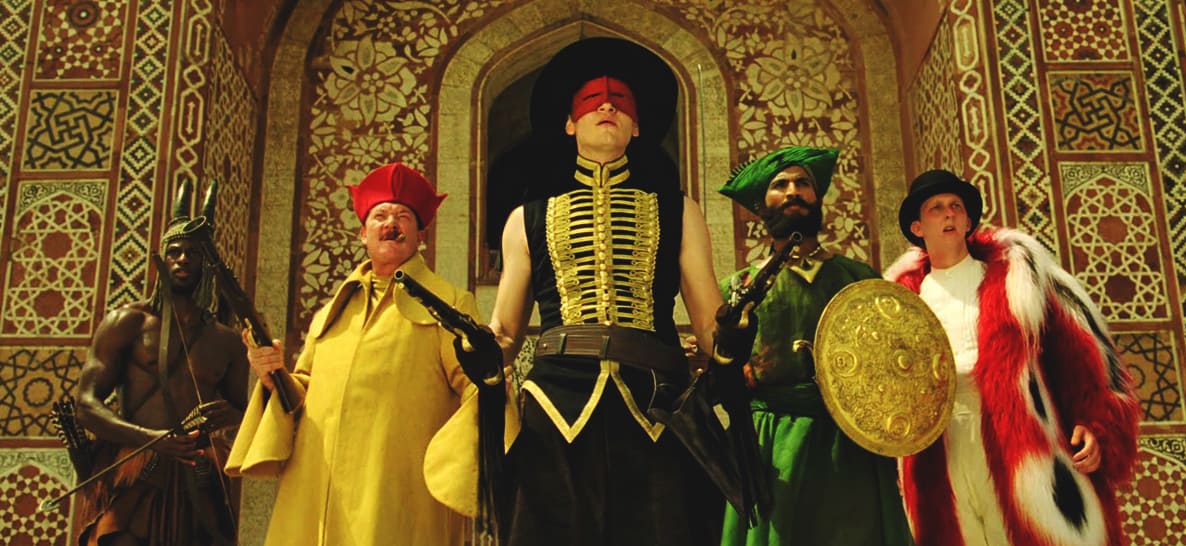
It’s a pleasant fall Sunday afternoon in New Orleans on the edge of the French Quarter, and Kurt Russell is pissed.
We’re talking about his new movie, Deepwater Horizon, on the eve of its official world premiere (attended by actual survivors of the petroleum disaster, along with family members of those who didn’t) and I apparently struck a nerve when I brought up the fact that director Peter Berg has been criticized for portraying oilmen as heroes.
But before we get to how Russell would like to play God with some of those scoffers—first, a primer.
Deepwater Horizon Spill
On April 20, 2010 in the Gulf of Mexico, far off the Louisiana coast, the largest man-made oil spill in human history occurred. The oceanic oil rig Deepwater Horizon suffered an explosive and catastrophic breakdown—due to mismanagement by BP Oil executives (one portrayed by John Malkovich), despite warnings from rig technicians—that led to a sea-floor oil gusher. It went on for 87 days before it was finally capped.
Over those three months, 210 million gallons of oil spewed into the Gulf’s waters. Clean up took months, and the damage to marine and wildlife habitats was extensive.
Yet it wasn’t until he read the script that Russell learned 11 people had died.
“I was shocked, kind of on the edge of confused and offended that, as a pretty good news watcher, I didn’t know that,” Russell says, describing this revelation. “And I thought, how’s that possible?”
This is where Russell’s contempt began to rise.
“Well it was possible because it only got presented by the media as a potential ecological disaster. That’s what the story was. That’s what was getting fed day in and day out. Never anything about the people. And these people really went through hell.”
Finding the balance
In the movie, starring Mark Wahlberg as rig electronics specialist Mike Williams (whose foreboding Congressional testimony opens the film), “hell” is an apt descriptor of the fiery inferno, one so massive it could be seen from outer space.
The 126-member crew was, as Russell describes it, caught in “an Armageddon” of literal fire and brimstone raining down upon them.
The conviction that their stories had to be told is what led Russell to sign on as Mr. Jimmy, the manager of the Deepwater Horizon in charge of the entire crew, who locks horns with Malkovich’s BP brass.
“The loss of life here, what these people did to survive to me, that’s a tale far more worthy of telling, of examining and of putting into perspective,” Russell says, reflecting on how their bravery was overlooked in the environmental-centric media coverage. “I wanted to be a part of letting people know.”
He credits Wahlberg and Berg’s “very tight relationship” for the film’s success, one that captures multiple human stories in the midst of a dire, disturbing spectacle.
“It’s a difficult thing to translate physicality into emotionality, trying to find the right balance in terms of characters, in terms of storytelling, and Pete did that really well,” Russell says.
That balance was achieved in part by also portraying the experience of loved ones back on the mainland as the disaster went down. Their anxiety and fears are brought to life by Kate Hudson, Russell’s real life stepdaughter. She portrays Felicia Williams, Mike’s wife, and was drawn to the project because, as Hudson put it, the script did “a very good job of not trying to get too political, while still having something important to say.”
“For us,” Hudson says, referring to her discussions with Berg and Wahlberg, “it was about the families. And the No. 1 thing is that they were in the dark. Nobody was giving them any clear answers.”
To depict their “survival mode” was important to Hudson, as it further humanized everything about the event.
“For hours and hours, as Felicia put it, it felt like an eternity. A minute felt like a lifetime.” It was about embodying “what goes on in your mind during that time,” the torture of the what ifs and unknowns, “while also trying to keep it together for your kids,” Hudson observes. “It’s almost as if something else takes over.”
Combating political correctness
For Russell, that same survival mode is what accounts for the heroism of the blue-collar rig workers on the Deepwater Horizon. Drawing a contrast to heroes such as soldiers and first responders, Russell emphasizes that “these are not guys who are trained to go in and save people. They’re just trained to deal with an emergency by going by the numbers. And no matter how you train for emergencies, it always happens differently. So when it vastly exceeds what you imagined what that emergency might be like, well, you realize that these guys just did incredible things.”
Which brings us back to the film’s detractors. “I think they’re drowning in political correctness,” Russell says, dismissing them rather bluntly, adding with sarcastic disdain.
“I guess those are the same people who just want to see a pelican with oil on it.”
Hudson is more measured in her assessment. “Anything to do with the oil industry is always going to be polarizing,” she acknowledges. “You’re always going to get the negative and the naysayers. But we should be making movies to create dialogue.”
“We all know what the environmental aspects have been, and those things are always important to remember and look at, but the people got lost in that. You have the image of the [oil-drenched] pelican more than you do these 11 families who lost their loved ones, but it’s all tragic.”
Of the film’s political correct cynics, however, Russell is less patient.
“I’d like those people who have, in my mind, the intellectual—the faux intellectual—audacity to question [the rig workers], I would love to put them there. If I could play God I’d love to say to them, here, trade places. You go through what you have to go through to survive—and now I’m going to criticize you.” Russell shakes his head. “And then I’d just say, “Man, do you kind of feel differently about it now?”
Hudson feels that demonizing the rig workers is misplaced anger.
“Say what you want, what you desire, but do it without putting those people down,” Hudson admonishes, getting a bit protective of the people she’s met and grown to admire.
“It’s important to remember that people need to work. People need jobs. I would never put anybody down for putting food on their kids’ table.”
For Russell, the reward here is having done right by the people they portrayed, and getting their story finally told.
“For me, human beings will always be the most important thing,” he says, even as he acknowledges that the shoot was often difficult. “In all honesty it was not a smooth ride.”
Along with the rigors of the shoot itself and the intricate dynamics of the multi-character narrative, Russell said that Berg also had to regularly contend with “banks of lawyers,” given the subject matter. “We had to keep plugging away day after day after day, but Pete was always taking advantage of the opportunities. He got good stuff.”
“And in the end, Pete found the right tone, the right message and the right character balance,” Russell says, now with a hint of pride in his voice. “He found the right movie.”





















